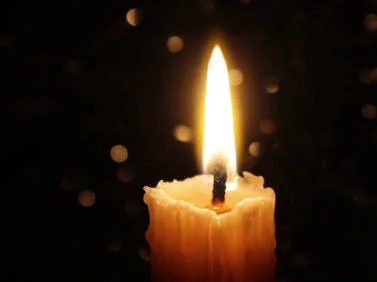The Taliban ruled Afghanistan between 1996 and 2001 before being ousted by the US forces following their complicity in the Al-Qaeda terror attack on the World Trade Centre in the US on September 11, 2001, that left 2,977 people – 2,507 civilians, 343 firefighters, 72 law enforcement officers, and 55 military personnel – dead.
During their time in power, a strict Islamic law was imposed, which among others mandated men to grow beards; the more stringent part was the freedom of the womenfolk that was severely curtailed such as wearing of a dress code – burka by women (which covered their whole body), no woman could walk in the street without a male relative, education was not allowed for women, and they couldn’t take up careers except in the health sector, forced marriage at ayoung age and so on.
But all these were abrogated as the American-backed governments began to lead the country.
For almost twenty years, women enjoyed freedom like men, they attended schools, held political offices, participated in sports, threw off burka, they generally lived a fuller life.
Now, that the Taliban are back in power, concerns are growing that two decades of educational, social and political rights are about to be curtailed once again.
Though the Taliban say under their rule women can study and work “within the framework of Islamic law” – but what that will mean in practice is not clear.
Will women be able to vote, or hold political office? Could they be judges or sports personalities? No answers so far.
When Taliban spokesperson Zabihullah Mujahid was pushed to give more details, he palmed the answer off to the “new administration who will make the rules”.
He did, however, vaguely say women would be “needed” in the health, law, education and policing sectors. But to what capacity was again not made clear.
“I don’t believe what they’re saying,” was the reaction of one woman in Kabul, who watched Mujahid speak on TV.
“It’s a ruse, and we’re being lured outside to be punished. I refuse to study or work under their laws,” was the reaction from another woman, who was too afraid to leave home.
Despite major mistrust and scepticism from Afghan women, some have surprisingly welcomed the Taliban’s approach to women’s rights.
One woman said: “If we’re able to work and get educated, that’s the definition of freedom for me, that’s my red line. That red line is not crossed by the Taliban yet.
“As long as my right to study and work is protected, I don’t mind wearing a hijab. I live in an Islamic country and I’m willing to accept the Islamic dress code as long as it’s not a burka, though, because that’s not an Islamic dress code”


Inside the Afghan Taliban from 1996 to 2021 and the new fear
Shortly after her 12th birthday, Ameneh — not her real name — was forced to get engaged to her adult, bearded cousin and move into the house of her uncle, a businessman who traded with the Taliban.
That was two decades ago. Back then, the Islamist movement was at the height of its power, controlling Afghanistan through fear and intimidation, while enforcing strict religious rule that meant women rarely ventured outside — if they did they had to be covered from head to toe in a burka and accompanied by a male relative. Young girls such as Ameneh were prevented from attending normal schools, and instead pushed into arranged marriages.
But after the 2001 US-led invasion of Afghanistan, the teenager discovered a freedom that would have been unimaginable. Emboldened by the Taliban’s loss of power, she fled the home of her uncle, who was the family’s patriarch after the death of her father years earlier, and tossed off her burka. With her mother’s support, she went to a civil court and annulled her engagement. She went to school, worked in business and human rights, chose to remain single and enjoyed an active social life.
Today, Ameneh says her childhood nightmares have returned now the Taliban is back in power after a week-long blitz by its forces across the country.
“Along with my sisters and mother, we took all our documents, left our house, and hid at a friend’s. We fear that the first man who will show up at our doorstep is our uncle,” Ameneh told the Financial Times.
“I threw out my burka 20 years ago and am not going to accept that humiliation ever again nor can I be forced to marry anyone,” she added, bursting into tears on the telephone.
The concern for Ameneh, and women like her, is that after the US withdrawal and the spectacular collapse of the Afghan government, the civil liberties they have enjoyed over the past two decades will be swiftly reversed and their lives will be plunged back into darkness.
The Taliban, which seized Kabul on Sunday after Afghan president Ashraf Ghani fled the country, have insisted that the movement will not impose the same harsh restrictions and Islamic codes they enforced in the 1990s. So far, they have resisted restricting Afghans’ access to the internet and women are still able to go outside without being accompanied by male guardians.
But female activists believe they will soon see their political, educational and social rights, which enabled them to become MPs, drive cars and compete in sporting events, rolled back.
Some television programmes, including Turkish and Indian soap operas, have already been replaced by Islamic ones, while owners of businesses have taken down pictures of women from beauty salons, tailor shops and plastic surgery centres for fear of being punished by Taliban militants.
Ghouryan, a channel on Telegram that is close to the Taliban, quoted a member of the “Islamic Emirate of Afghanistan” as telling academics in Kabul that “our sisters can continue their administrative and educational activities . . . Don’t listen to baseless news.”
But Herat Times, an anti-Taliban news channel on Telegram, quoted a regional Taliban spokesman as saying that “the presence of women in government-owned offices is difficult”. It added that probably “women can only be present in the health and teaching sectors”.
Many women are already adjusting their lives in the expectation of what is to come.
Talking by phone, a university professor in Herat said that two days after the Taliban seized control of Afghanistan’s third largest city on Saturday, she chose to wear a dark-coloured chador, a conservative gown that covers the head and drops down to a woman’s feet, to work. The previous week, she wore a colourful manteau with a scarf loosely covering her head and a touch of make-up on her face, she recalled.
“While the Taliban were inside the university, the regular security guards at the entrance told me that ‘women cannot go in for now’,” she said. “I was also told that the Taliban’s message was they would not deduct my salary because of my absence, but would decide later about whether women could be present in the university.”
Female academics expect the burka to once again become obligatory dress and worry that gender segregation will be imposed at universities — if women will be allowed to continue their roles in education. They are also concerned that elements of schools’ curriculum will be curtailed or abolished, such as English, mathematics and physics, and replaced with more Islamic lessons.
Afghanistan has a literacy rate of 43 per cent, up from 31.4 in 2011 but still one of the world’s lowest rates. The gender gap remains substantial, with men’s literacy at 55 per cent and women’s at 30 per cent, according to the World Bank.
In Kabul, another university professor said she and her colleagues were “in a huge state of uncertainty with grave security concerns”. “We have no idea what’s going to happen to us,” she said.
Fearing for their lives if the Taliban deems their lifestyles to be sacrilegious, some women are considering fleeing their homeland. Maryam Durani, a journalist and rights activist in Kandahar, where she has helped promote education for girls, said she received threatening messages this month warning her that her life was at risk if she continued her activities. Just before the southern city fell to the Taliban, she escaped to Kabul.
“There’s no guarantee for our security,” she said. “We may have time to find a way out [of Afghanistan].”
All those who spoke to the FT doubted the Taliban of today would be different from the movement of two decades ago.
“What we have seen these days tells us that the Taliban’s ideology and policies have not changed, but they have learnt how to pretend and fool the world,” said a female surgeon in the western town of Herat.
She was two years old when her family house was destroyed by a rocket during the 1980s civil conflict. Her family fled to neighbouring Iran, but moved back after the 2001 US invasion brought promises of a better life in their home country. Now she blames the US and its allies for abandoning her nation.
“I’ve studied for 25 years only to be ruled now by people who have no education,” she said. “If I’m allowed to go to work, I am sure I will have to wear a burka, which I can no longer tolerate. The world and the US betrayed us.”

